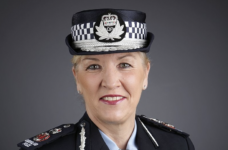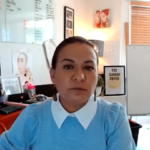Queensland Police Commissioner Under Fire For Failing to Implement Reforms

When Katarina Carroll was first appointed as Queensland’s Police Commissioner on 8 July 2019, it was a ray of hope in the eyes of many.
She is the first female in the top job and promised to implement sweeping reforms in a number of areas, including the toxic culture that pervaded the organisation and the protection of women.
They were assurances that were tentatively welcomed by many, particularly because the misconduct of the state’s police officers had been making headlines for years, and the deplorable actions of a particular officer were receiving attention.
Officer brags about endangering domestic violence victim
Senior Constable Neil Punchard had illegally accessed a woman named Julie’s personal information on the QPS’s QPrime database in 2014, and given it to his friend, Julie’s ex-partner – a man who threatened to kill Julie and blow up their children.
After making jokes about it, Mr Punchard then bragged to his friend that if police asked questions he could just give them his name, because it was a ‘get out jail free’ card.
After a long and protracted legal battle – and despite Mr Punchard being charged and pleading guilty to nine computer hacking-related offences for which he was given a two month suspended sentence in October 2019, and eventually resigned from the QPS in 2021 – Julie bravely fought on.
She eventually won her battle against the QPS over breach of her privacy in 2019.
Misconduct of police officers
While Ms Carroll’s appointment to the job came just as Julie’s battle with the QPS was finally coming to a close, for a woman holding the top job, and therefore perceived to be in a position of significant authority – and with a mission to do better for victims – Ms Carroll was noticably quiet about the whole ordeal.
Many believed her silence was related to the fact that the events had occurred ‘prior to her watch’ or because the legal process was not quite officially complete. But even so, her inaction, by way of not even acknowledging Julie’s case and the several serious instances of police misconduct that it brought to light, along with the sheer inadequacy of the police complaints system were heavily criticised.
Now, it seems, it is time for her to face some accountability. Queensland’s commission of Inquiry into the widespread cultural issues within the force, with a focus on issues affecting the police response to domestic and family violence, has heard some very damaging evidence.
Misogynistic behaviour
Deputy Commissioner Paul Taylor sensationally resigned “vagina whisperer” comments unearthed by the inquiry and another senior officer has taken leave after being disciplined for public sexist remarks.
In recent weeks the inquiry has reportedly received an additional 250 new submissions from QPS officers who say they finally feel “emboldened” to speak out.
While Ms Carroll was, only weeks ago, confidently facing the inquiry ready to talk about “the journey of reform” that she says has taken place within the QPS during the few years since her appointment, evidence given to the inquiry does not necessarily support this as the day-to-day reality.
We must not forget either, that Ms Carroll was once steadfastly against the inquiry, saying she did not believe it was warranted, although she later told media that QPS would support the process. In her first appearance at the inquiry several weeks ago, she had to admit to cultural issues, although she said despite being significant, she did not believe they were widespread.
Deeply embedded problems within the force
For many officers themselves, the inquiry presents something of a watershed moment. Many have wanted cultural problems to be highlighted and fixed for a long time, although one of the major stumbling blocks when it comes to reform is said to be the Queensland Police Union, which is exceptionally influential.
Union President Ian Leavers will now also face the inquiry. It has long been the union’s view that the actions of ‘some police officers’ don’t reflect the overall values and culture of the QPS itself.
But that too, is not necessarily easy to believe, given what the inquiry has heard in recent weeks, and from the stories that have made their way into the media in recent years.
Corruption
Former QPS officer Rick Flori spent more than six years trying to clear his name after he leaked footage of his colleagues bashing a young handcuffed man under arrest in the basement car park of a police station. Rick Flori was dismissed from the force and charged with misconduct in a public office – a charge a jury found him not guilty of in 2018.
Time passes, but little changes
There are more stories – and, as police officers themselves now say, ‘cracks are emerging in the blue wall of silence’ that surrounds the systemic problems within the QPS.
What happens next remains to be seen. The inquiry is due to deliver its final report later this year – before Christmas.
However, Australian Governments at both a state and federal level have a habit of filing away inquiry reports and recommendations, despite the good intentions and hard work done by inquiries.
Even in circumstances where attempts at reform are made, these can be painstakingly slow, and without any measures of accountability over the longer term. For those of us who remember, it has to be asked whether all that much has really changed within the QPS since the Fitzgerald Inquiry in 1987.
That inquiry investigated corruption at the highest levels of the Queensland Police Force. The focus of this current inquiry is different, but what remains clear is that Queensland police officers don’t always act in the best interests of the public they are employed to protect, and who pay their salaries.
It’s certainly ironic that the State’s first female police commissioner could indeed find herself being blamed for the deeply embedded problems within the QPS, particularly its poor treatment of women, which by and large, appears to have been perpetuated by men.







